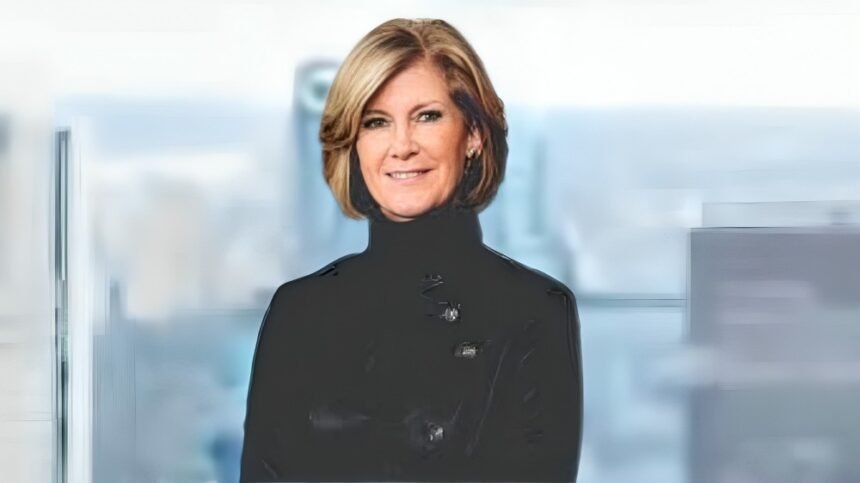Mary Callahan Erdoes: CEO of Asset & Wealth Management
Mary Callahan Erdoes is the CEO of Asset and Wealth Management at JPMorgan Chase, one of the largest and most influential divisions of the bank. As one of the most respected women in global finance, she oversees trillions of dollars in client assets and plays a key role in shaping the future of the financial industry. Her leadership drives growth and inspires the next generation of leaders in finance.
Early Life and Education
Mary Callahan Erdoes was born on August 13, 1967, in Menlo Park, California, and grew up in Winnetka, Illinois, in an Irish-Catholic family. Her father, Patrick Callahan Jr., worked as a partner at Lazard, the global investment banking firm. Erdoes attended Woodlands Academy of the Sacred Heart, a Catholic all-girls high school in Lake Forest, Illinois.
She went on to Georgetown University, where she earned a Bachelor of Science degree in mathematics, being the only woman in her class to major in the subject. Later, she pursued her MBA from Harvard Business School, building the foundation for her career in finance and leadership.
Career Beginnings
Erdoes began her career at Stein Roe & Farnham, a role she once humorously described as a “glorified mailroom job.” In 1989, she moved to Bankers Trust, gaining valuable experience in corporate finance, merchant banking, and high-yield debt. She later joined Meredith, Martin & Kaye, a fixed-income advisory firm, where she specialized in credit research, trading, and portfolio management.
These early experiences sharpened her analytical skills and built her reputation as a finance professional with strong judgment and client focus.
Rise at JPMorgan Chase
Mary Callahan Erdoes joined JPMorgan in 1996 as head of fixed income for J.P. Morgan Asset Management, advising high-net-worth clients, endowments, and foundations. Her leadership quickly earned recognition, and in 2005, she became CEO of the Private Bank. By 2009, she was appointed CEO of Asset & Wealth Management, a position she continues to hold.
Today, she oversees operations managing more than $4 trillion in client assets which recently cited as high as $6.4 trillion.Under her guidance, the division has grown into one of the most successful and trusted parts of JPMorgan Chase.
Leadership and Influence
As one of JPMorgan’s most senior executives, Erdoes is regularly named among the most powerful women in finance. Her ability to combine data-driven decision-making with empathy makes her stand out in a competitive industry. She has also been seen as a leading candidate to succeed Jamie Dimon as CEO of JPMorgan Chase, reflecting her influence at the highest levels of the firm.
Her leadership style is grounded in accessibility and mentorship. She once said that if she could, she would mentor all 22,000 of the division’s employees, a statement that reflects her people-first approach.
Vision and Global Impact
Erdoes is also known for her global outlook. During her travels to China, she emphasized the importance of reconnecting investors with opportunities in improving markets. She believes in balancing short-term client needs with long-term strategic growth, a perspective that has strengthened JPMorgan’s global asset and wealth management business.
Beyond finance, Erdoes is deeply committed to philanthropy. She has served on boards such as the U.S. Fund for UNICEF, the Robin Hood Foundation, and the U.S.–China Business Council. In recent years, she and her family raised significant funds to support Ukrainian families and even volunteered at an orphanage in Poland.
Why Her Story Inspires
Mary Callahan Erdoes’ journey is both inspiring and instructive. From her early education in mathematics to leading one of the world’s most powerful financial divisions, her path reflects determination, resilience, and vision. She represents the best of leadership in asset and wealth management, showing how values, intellect, and empathy can work together to create lasting impact.
For anyone following leadership stories in finance, Erdoes’ career demonstrates that strength in numbers is important, but strength in people is transformative.






